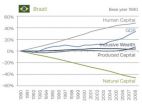(Press-News.org) Boston, MA – Paying hospitals to improve their quality of care, known as pay-for-performance, has gained wide acceptance in the U.S. and Medicare has spent tens of millions of dollars on bonuses and rewards for hospitals to improve. However, little is known about whether pay-for-performance actually improves patient outcomes over the long term. A new study from Harvard School of Public Health (HSPH) finds no evidence that the largest hospital-based P4P program in the U.S. improved 30-day mortality rates, a measure of whether patients survive their hospitalization.
Given that the Affordable Care Act calls for the Centers for Medicare and Medicaid Services (CMS) to expand pay-for-performance to nearly all hospitals in 2012, the findings call into question whether this payment approach will have a beneficial effect on patient care.
The study appears online March 28, 2012 in the New England Journal of Medicine.
"These results suggest that the way we have currently conceived of pay-for-performance is unlikely to have any meaningful impact on patient outcomes," said Ashish Jha, associate professor of health policy and management at HSPH and lead author of the study.
The researchers, including senior author Arnold Epstein, professor and chair of the Department of Health Policy and Management at HSPH, analyzed data provided by 252 hospitals participating in Medicare's Premier Hospital Quality Incentive Demonstration program. They examined 30-day mortality rates for more than 6 million patients with acute myocardial infarction, congestive heart failure, pneumonia, or coronary artery bypass graft surgery between 2004 and 2009. Non-Premier hospitals—those not part of Medicare's pay-for-performance program—were used as a control group.
The results showed that there was no impact on patient outcomes for hospitals in the Premier pay-for-performance program compared with non-Premier hospitals. In addition, no difference was found in outcomes even for conditions in which mortality rates were explicitly incentivized—acute myocardial infarction and coronary bypass graft surgery. Even among poor-performing hospitals, which have the most to gain by improving quality of care, improvements were comparable to poor-performing non-Premier hospitals.
"Our findings suggest that both the size of the incentives and the targets matter. In the Premier demonstration, the incentives were small and patient outcomes were not the major focus. It is not surprising, in retrospect, that this program failed to improve patient care," said Epstein.
"We need to better align financial incentives with delivery of high quality care," said Jha. "This study suggests that in order to improve patient care, we are going to have to work a lot harder to identify and implement an incentive program that works."
INFORMATION:
The study was funded by the Robert Wood Johnson Foundation.
"The Long-Term Effect of Premier Pay for Performance on Patient Outcomes," Ashish K. Jha, Karen E. Joynt, E. John Orav, Arnold M. Epstein, New England Journal of Medicine, 10.1056, online March 28, 2012
Visit the HSPH website for the latest news, press releases and multimedia offerings.
Harvard School of Public Health is dedicated to advancing the public's health through learning, discovery and communication. More than 400 faculty members are engaged in teaching and training the 1,000-plus student body in a broad spectrum of disciplines crucial to the health and well being of individuals and populations around the world. Programs and projects range from the molecular biology of AIDS vaccines to the epidemiology of cancer; from risk analysis to violence prevention; from maternal and children's health to quality of care measurement; from health care management to international health and human rights. For more information on the school visit www.hsph.harvard.edu.
HSPH on Twitter: http://twitter.com/HarvardHSPH
HSPH on Facebook: http://www.facebook.com/harvardpublichealth
HSPH on YouTube: http://www.youtube.com/user/HarvardPublicHealth
HSPH home page: http://www.hsph.harvard.edu
END
Weight loss and increased physical fitness nearly halved the risk of losing mobility in overweight or obese adults with type 2 diabetes, according to four-year results from the Look AHEAD (Action for Health in Diabetes) trial funded by the National Institutes of Health. The results are published in the March 29, 2012, issue of the New England Journal of Medicine.
"Being able to perform routine activities is an important contributor to quality of life," said Griffin P. Rodgers, M.D., director of the NIH's National Institute of Diabetes and Digestive and Kidney Diseases ...
Liposuction is one of the most common plastic surgery procedures performed in the United States today. Liposuction is an effective way to remove up to ten pounds of fat from almost any area of your body, helping provide you with a slimmer, more attractive frame.
Typically, liposuction is used to treat areas where deposits of stubborn fat will not respond to diet and exercise. These areas include:
- Legs
- Hips
- Abdomen
- Back
- Arms
- Chest/breasts
- Neck and face
The liposuction technology that will best suit your needs should be determined by an experienced, ...
More than half of all cancer is preventable, and society has the knowledge to act on this information today, according to Washington University public health researchers at the Siteman Cancer Center in St. Louis.
In a review article published in Science Translational Medicine March 28, the investigators outline obstacles they say stand in the way of making a huge dent in the cancer burden in the United States and around the world.
"We actually have an enormous amount of data about the causes and preventability of cancer," says epidemiologist Graham A. Colditz, MD, DrPH, ...
American researchers have shown that prospective magnetic fusion power systems would pose a much lower risk of being used for the production of weapon-usable materials than nuclear fission reactors and their associated fuel cycle.
The researchers, from Princeton University, found that if nuclear fusion power plants are designed to accommodate appropriate safeguards, there is little risk of fissile materials being produced for weapons, either secretly or overtly.
Their results have been published today, 29 March, by IOP Publishing in the journal Nuclear Fusion.
In ...
An improperly maintained truck provides ample opportunity for serious injuries to everyone else on the road. While not a leading cause of truck accidents, improper maintenance resulting in collision is far from rare.
When an accident is caused by an unmaintained truck, it is possible that several parties share responsibility for resulting damages. Working with an experienced truck accident attorney, you can determine who is liable for your injuries and pursue compensation for related medical expenses, lost wages, property damage, and pain and suffering.
Proper Vehicle ...
In the largest study of its kind, researchers have profiled genetic changes in cancer with drug sensitivity in order to develop a personalised approach to cancer treatments. The study is published in Nature on Thursday 29 March 2012.
The team uncovered hundreds of associations between mutations in cancer genes and sensitivity to anticancer drugs. One of the key responses the team found was that cells from a childhood bone cancer, Ewing's sarcoma, respond to a drug that is currently used in the treatment of breast and ovarian cancers. The lowered toxicity of this treatment ...
Genetic variants in a region of the genome linked to our immune response have been linked to increased risk of podoconiosis, a disfiguring and disabling leg swelling caused by an abnormal reaction to the minerals found in soil. An estimated 4 million people worldwide suffer from the condition.
In a study published today in the New England Journal of Medicine, researchers funded by the Wellcome Trust and the Association of Physicians of Great Britain and Ireland compared the genomes of 194 people affected by the disease from southern Ethiopia against 203 people who were ...
If you are a woman who has always felt cursed with small breasts, part of your motivation for getting breast augmentation was likely to get more attention from men. But how do you respond if you suddenly suffer from literally an embarrassment of riches?
Ignore Random Catcalls--You will likely get a loft of random male attention on the street. This is annoying, but a fact of life for any pretty girl, and likely you were not a complete stranger to it before. Any time men get together, they are always looking for diversion in the form of an attractive woman, and their catcalls ...
Scientists working at the Institut Laue-Langevin, one of the world's leading centres for neutron science, have carried out the first investigation of two-dimensional fermion liquids using neutron scattering, and discovered a new type of very short wave-length density wave. The team believe their discovery, published in Nature, will interest researchers looking at electronic systems, since high temperature superconductivity could result from this type of density fluctuations.
Fermi liquids are composed of strongly interacting fermion particles, a group that includes quarks, ...
Brazil and India pay a high price for rapid economic growth, according to experts speaking at a major international meeting in London, Planet Under Pressure.
Between 1990 and 2008, the wealth of these two countries as measured by GDP per capita rose 34% and 120% respectively. But a myopic focus on economic capital is flawed, scientists and economists at the conference argue. Natural capital, the sum of a country's assets, from forests to fossil fuels and minerals, declined 46% in Brazil and 31% in India, according to a new "Inclusive Wealth Indicator" designed to augment ...

